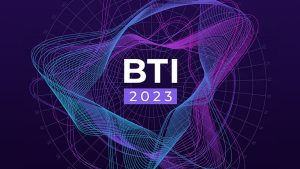Expleo, the trusted partner to rail operators
Operators: meet the challenges of the railway with Expleo
The railway sector is complex, dynamic and at the center of attention and innovation to meet societal and environmental challenges. The sector is being modernised to respond to growth in mobility, with numerous innovations and changes in rolling stock, signalling infrastructure and the digitalisation of services. Trains have become a symbol of tomorrow’s mobility, but operators must meet the challenges they face. Expleo supports all rail operators in meeting these challenges, with its in-depth knowledge of the field and its expertise in R&D and digital transformation.
This blog identifies the challenges facing rail operators and how Expleo is helping them to meet these challenges. This will give you a clearer picture of the current ecosystem and help you identify avenues for development.
Did you know?
Expleo is investing in rail innovation projects, such as the intelligent hybrid railway, with a view to reinventing the customer experience, the development of the autonomous vehicle, and training programmes to best meet customer and market expectations.
have been trained by Expleo
in the railway sector




